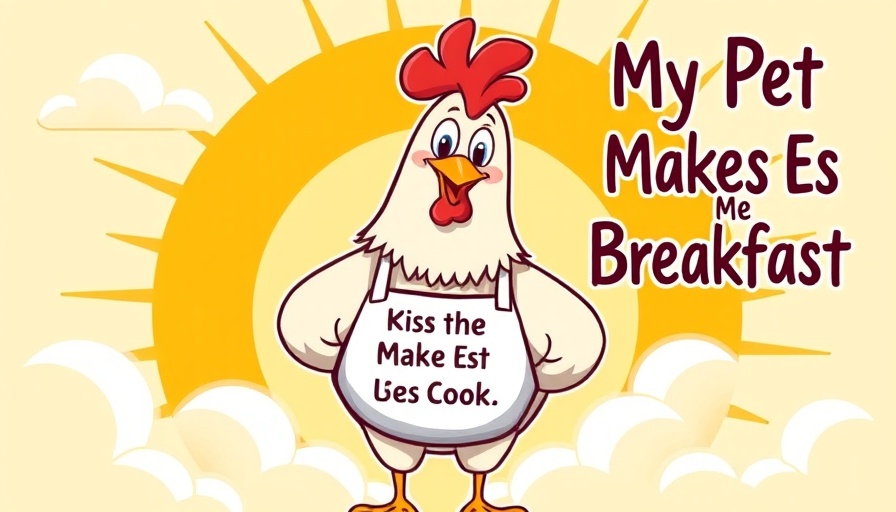
Understanding Egg Yolk Peritonitis in Backyard Hens
Egg Yolk Peritonitis (EYP) poses a critical health risk for many laying hens, particularly as they age. The condition arises when yolks leak into the coelomic cavity instead of being expelled as eggs. This leakage often leads to a dangerous bacterial infection, frequently caused by E. coli, resulting in acute peritonitis. The symptoms can vary but typically include a swollen abdomen, depression, and changes in droppings, such as yolk-colored feces. Unfortunately, due to their instinct to hide illness, hens often appear fine until the disease is advanced, making early intervention crucial.
The Challenge of Early Detection
Recognizing the signs of EYP early can significantly impact treatment efficacy. As noted by poultry enthusiasts, like one owner who successfully managed her hen Penny's repeated bouts of EYP, timely identification can prevent severe deterioration. Commonly, symptoms closely mimic those of egg binding, escalating the need for vigilant observation of laying patterns and behaviors in hens, especially older or previously troubled layers.
Natural Remedies and Treatments for EYP
While veterinary intervention remains ideal, many backyard chicken owners turn to natural remedies, especially when access to avian veterinarians is limited. Among the most cited home treatments is the use of epsom salt baths, which can help alleviate swelling and prepare hens for further therapeutic measures. For instance, a blend of epsom salt and distilled water can be administered as an enema, effectively flushing the system. Other natural options include the use of nutritional supplements such as Nutri-Drench and herbal antibiotics that are thought to boost the hen's immune response.
Lessons from the Community: Shared Success Stories
The poultry community has shared numerous success stories, detailing personal experiences with EYP. A particularly compelling case involved a hen that regained health through a combination of nutritional strategies — including high-protein gruel made from smashed hard-boiled eggs and finely crushed egg shells. This highlights the importance of not only treatment but also proactive health maintenance through a balanced diet that encourages strong egg production without undue stress on the reproductive system.
Future Directions for Chicken Owners
As awareness of EYP increases, it may lead to more resources, both in treatment protocols and preventative care. Backyard chicken owners should invest in comprehensive first-aid kits and stay updated on best practices for managing common ailments affecting their flocks. Knowledge sharing within the community will only enhance our collective capacity to care for these beloved birds.
Ultimately, while the reality of Egg Yolk Peritonitis is daunting, understanding its nature, recognizing its symptoms, and collaborating with fellow chicken enthusiasts through shared experiences and remedies can foster an environment where care for our hens is both effective and compassionate.
 Add Row
Add Row  Add
Add 




Write A Comment